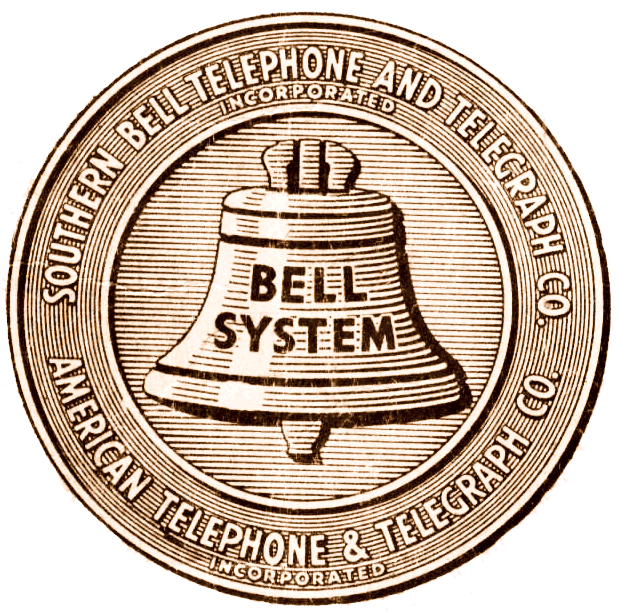The FTC wants to ban hidden ‘junk fees’ that jack up the price of your purchases::A new rule proposed by the FTC targets hidden and “bogus” fees businesses often add onto their services at checkout, aiming to do away with the deceptive practices.
Price advertised == Price actually charged.
It’s not really that hard. Do it!
Can we please include sales tax in that price too? It is also a bullshit hidden fee the way the US does it.
The argument the idiots use is “We want to see government theft!” instead of just having a line item at the end of your receipt showing tax collected and the breakdown. It’s not like we don’t have toiletpaper roll length receipts already.
The kicker is we already do the “price at point of sale including taxes” thing at gas stations. If it’s $3.09 or whatever per gallon, that’s including state and federal sales tax.
We already see the line item thing on most receipts anyway. We basically do everything except roll the sales tax into the sticker price.
Only 3.09 per gallon? We pay 2 per litre!
CVS be changing their tape rolls every other customer…
CVS near me gives you a store credit if you let them email your receipt to you. It’s silly.
It’s very profitable for them to sell your email + buying habits I’m sure.
CVS has entered the chat
Government: no not like that
My weed dispensary includes taxes in the display price. It’s awesome
How would a company advertise pricing across multiple states? E.g. on the web…
Use your ip address or GPS location or address to get your location and use a sales tax api product like: https://www.avalara.com/us/en/products/integrations/avalara-api.html
Not an endorsement, just an example that companies already consider this.
that would very much wreak havoc with caching since you basically can’t cache pricing including sales tax as it depends on your very specific location.
of course, for things like event tickets, it’s the venue’s location that matters for tax, so it works out to be a non-issue.
Companies have no problem doing it to comply with EU regulations which require tax to be included, so I see no technical reason why they couldnt figure it out for the US.
Maybe you could do more localized caching. Localities with different sales tax are finite and few. Cache pages based on those localities and then serve pages based on the IP of the client. It’s not ideal or as optimal, but it’s not that unreasonable in my mind. If it became the norm we’d build the infrastructure to sustain it.
Fair, I admittedly don’t know how one would implement it, but the sales tax data is being used by their clients for something.
Looking into it further, some states, according to Shopify’s FAQ on the topic, have different rules with regards to destination-sourced vs origin-sourced sales. 🤷♂️
It’s an imperfect solution. VPNs are an issue - and even if you don’t use a VPN, the API only knows the location of the ISP’s servers - which can be in a different state.
My point was that, the law should leave tax inclusion in pricing as optional. There is no way to implement automatic detection cleanly, other than prompting the user to confirm their location, which is a huge annoyance - so the ‘tax inclusion’ rule would not make things better or more convenient.
The same way most sites show it today, “Enter zip code:”
I’d rather see prices without tax, than have to enter my zip code before I can see any pricing for anything online.
They could also just charge one price to everyone and then pay taxes after. I don’t think they have to pass the tax onto the customer like that.
Just charge everyone $10, note where they live, and when taxes are due figure out how much of everyone’s $10 needs to be paid to government
And cities. Even some surprisingly small cities charge additional sales tax
Alright let’s target Ticketmaster first.
How to say you didnt read the article without saying it…
What kind of loser reads the articles? I just make snap judgement on catchy titles.
The website isn’t loading for me, can you tell me what the article says?
A new rule proposed by the Federal Trade Commission (FTC) would ban the sneaky fees some companies slap onto their services at checkout time. Thanks to these junk fees, which have crept into the process of everything from buying concert tickets to booking vacation rentals, the prices consumers initially see are often nowhere near what they end up paying.
The Biden administration has been putting pressure on companies like Ticketmaster and Airbnb to improve their ways, and both recently committed to providing more transparency about their extra charges. The FTC wants to take things a step further by banning the common deceptive tactics altogether. The proposed rule targets both hidden, mandatory fees that aren’t properly disclosed upfront and ambiguous “bogus fees” that leave consumers unsure of what it is they actually had to pay more for.
These practices are misleading, with companies often resorting to “bait-and-switch pricing and misrepresenting the nature and purpose of fees,” the FTC argues in the proposal notice. Under the proposed rule, businesses would have to include these additional fees in their advertised prices, explain what each fee is for and let customers know if any of it is refundable.
The FTC took comments from the public last year to assess the impact of junk fees and ultimately gathered over 12,000 responses to shape its proposal. It’s now opening up comments for 60 days so consumers can weigh in on the rule it’s put forth. “By hiding the total price, these junk fees make it harder for consumers to shop for the best product or service and punish businesses who are honest upfront,” said FTC Chair Lina M. Khan. The proposed rule would "save people money and time, and make our markets more fair and competitive.”
That’s their entire business model
Seriously! They charge more in fees than some ticket prices.
While we’re at it, can you roll taxes into it as well? Fuck having to guess what the local sales tax is…
The difference being, of course, tax rates are publicly available and easily found online ahead of time
Which do you prefer to shop for, gas or hotel rooms?
Gas is always advertised with the tax built into the price. Every sign you see is the full price. When you look at online gas apps including Gas Buddy or even Google Maps, you’re seeing the full, final price.
Hotels advise one price on shopping sites and then you pay a much higher price once all the taxes are included. Can you look up the taxes in advance? Sure. Assuming you know to look for local sales tax, and county lodging tax, and the city entertainment tax. But why is that necessary? Why is it helpful to you as the consumer? Do you think the retailer doesn’t know the total price in advance?
Can you look up the taxes in advance? Sure. Assuming you know to look for local sales tax, and county lodging tax, and the city entertainment tax. But why is that necessary? Why is it helpful to you as the consumer? Do you think the retailer doesn’t know the total price in advance?
Exactly. There’s no reason any of that shouldn’t be included in the advertised price. I’ll never understand people who want to go to bat for practices that are at best asinine, and at worst, deliberately misleading because they place the burden of determining the final price on the consumer before reaching the “checkout” section.
Car dealerships shaking and crying
Hmmm Ticketmaster seems like a good place to start
Admittedly their fees are blatant because Uncle Sam basically handed them the whole market in the 2010s, when they were allowed to merge with Live Nation.
They’re starting with Ticketmaster right?
Those fucks are beyond this and just need to be destroyed
KKHHHAAAAAAANNN!
Seriously though, Lina Khan is awesome. Best FTC chair in a very long time.
Absolutely necessary and I hope it is implemented sooner than later
My partner’s best friend helped pen the legislation for this and specifically took it on because she knows how much this shit pisses my partner off lol
Wrong picture, that’s definitely Chad doing this.
Chadmare

Yet again, I can’t understand the rationale behind the FTC’s choice of their targets
To target something so ubiquitous that everyone has dealt with it and doesn’t like it?
Sure, but I’d rather see them tackle something bigger and more substantial
Idk, it makes sense to me. ISPs, utilities, cell phone providers are all guilty of this. I don’t want to read fine print for these sorts of transactions.
What would you rather the FTC tackle?
deleted by creator
You’re thinking of the FCC.
















